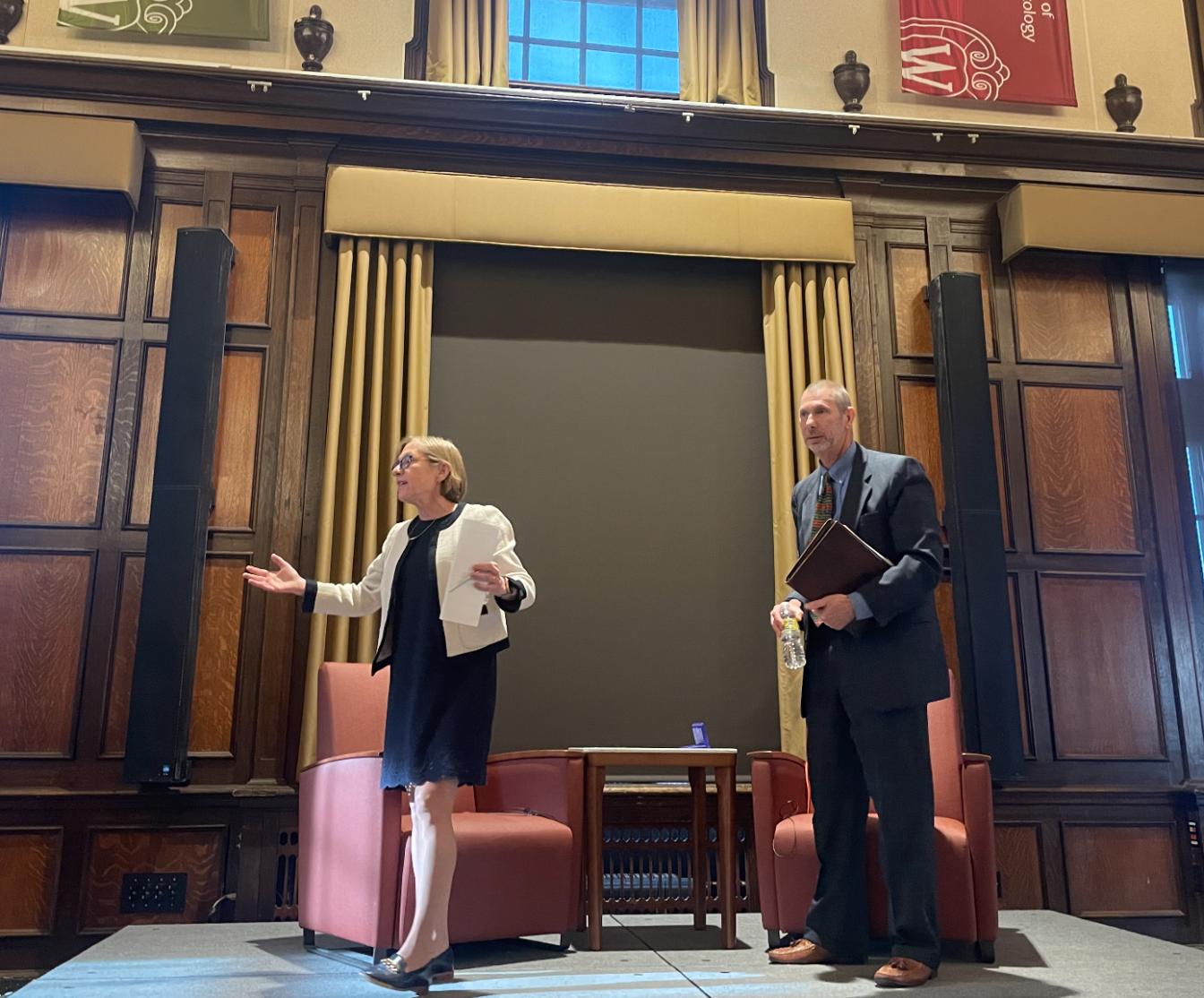Ann Cudd, a University of Wisconsin chancellor finalist and current senior vice chancellor at the University of Pittsburgh, held a Q&A session Wednesday at Memorial Union to address questions from the community and the UW System Search and Screen Committee.
Cudd, like all five finalists, was asked about the top challenges and opportunities faced by top research universities like UW in the next five to 10 years. Maintaining diversity of thought, rising tuition costs and competition for research funds are among the most pressing concerns, Cudd said. Cudd was the third finalist of five to complete the Q&A, a press release from UW said.
Recent legislation that restricts what can be taught — including the CRT ban passed in the Wisconsin legislature — limits research and discussion based on political ideology, Cudd said.
“This is antithetical to the mission of the university, which is to increase inquiry,” Cudd said.
A growing talent pool for students and staff, the digital revolution and UW’s unique combination of esteemed agricultural and medical science departments are some of the university’s greatest opportunities, Cudd said.
Cudd said One Health has vast potential at UW. One health is a CDC initiative to promote the interdisciplinary study of people, animals and the environment, especially in respect to disease between humans and non-human animals.
“UW is especially well positioned to conduct research on these emerging diseases,” Cudd said.
On the topic of the Wisconsin idea, Cudd said UW should do everything possible to extend the benefits of a top research university to the local and Wisconsin community.
Cudd also said shared governance is essential to the functioning of a university that is led by students and staff, but Cudd maintained it is not always possible to satisfy the requests of every group on campus.
“In the end, sometimes decisions have to be made that … take in consultation from other groups, [but] not everyone’s perspective will be equally well served in those decisions,” Cudd said. “But at least they will be heard.”
Admittedly, Cudd said she still has a lot to learn about the history of the Native American nations in Wisconsin and the land that UW occupies. UW is only in the beginning stages of rebuilding relationships with Native American tribes, and the future course of action will depend on the specific histories of these groups, Cudd said.
“We can’t go back to some kind of romantic past, but moving forward does require acknowledgement and reparation,” Cudd said.
UW’s revenue, staff retention, credibility and research rankings can all improve by marketing and patenting “feats” of engineering, medicine and more, Cudd said. She also proposed increasing flexibility for staff via childcare assistance and some virtual work options to help UW retain top-notch staff and boost rankings.
Cudd also plans to advocate for increased mental health resources, utilizing a more diverse range of therapies including telehealth, group therapy and other methods.
University of Notre Dame’s Marie Lynn Miranda will be answering the same set of questions Thursday, May 5 at Memorial Union.



